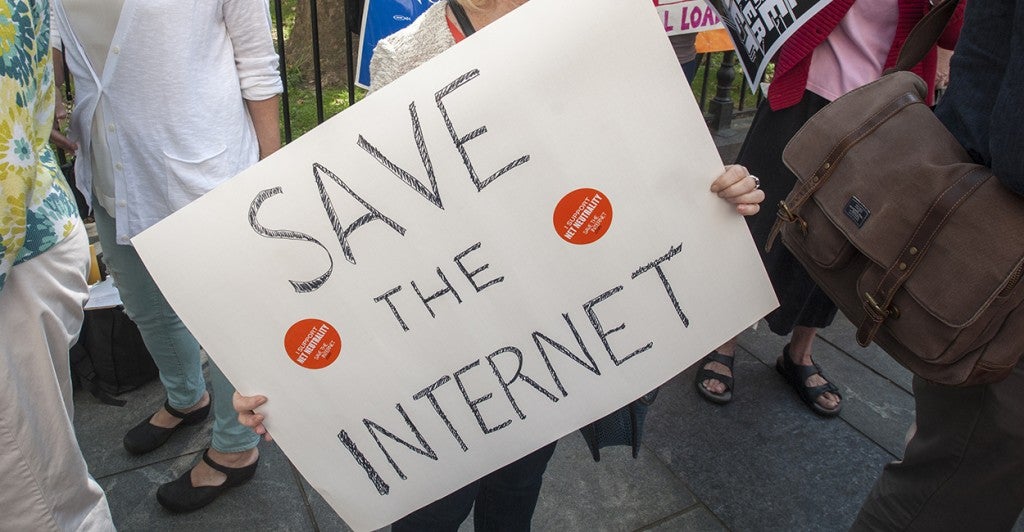Last month, President Obama announced his support for unprecedented “network neutrality” regulation of the Internet under Title II of the Communications Act—a step that would reclassify broadband providers as “common carriers” like telegraph and old-style telephone services.
Such heavy-handed regulation, he and other advocates say, is necessary to protect consumers and innovators from unconstrained Internet service providers who otherwise would block their access to websites and applications. Supporters of regulation raise the prospect of strangled innovation, impaired broadband speeds and even suppressed political speech.
It is a disturbing prospect, but this parade of horribles has little basis in reality. As detailed in our just-released report on the issue, incidents of marketplace abuses of this sort have been virtually non-existent.
FCC interference in the Internet marketplace would hurt the very consumers regulation advocates claim to protect.
The types of activities that, in fact, would be ensnared by the proposed new Internet regulations are far different. We found that most of the practices that have been identified by regulation supporters as activities that should be prohibited are in fact beneficial to consumers or are conducted by challengers in the marketplace, rather than by the big, dominant firms.
While much depends on the exact approach the Federal Communications Commission takes in crafting the rules, one thing is clear: FCC interference in the Internet marketplace would hurt the very consumers regulation advocates claim to protect. In most cases, net neutrality rules were either unnecessary or sought to limit innovative business practices by smaller firms, rather than abuses by the big guys. Even worse, the rules would shift additional costs back to consumers and away from companies through bans on sponsored-data plans and other pro-consumer practices.
Take, for instance, a plan by Sprint (the distant third-place wireless carrier) to give its low-cost subscribers—who are unlikely to pay for expensive data plans—free access to Facebook, as well other social media apps for a small fee. But instead of praising Sprint for bringing connectivity to this segment of the market, net neutrality advocates called for regulations that would ban the practice because it supposedly favored Facebook (the most popular social network) over other sites. Do these regulations really help consumers if they would block low-income users from gaining access to Internet applications?
The reality of net neutrality regulation would be a far cry from the Internet utopia envisioned by those who want to hand government greater control of the net. These regulations will not cut costs for consumers, “keep the Internet the way it is” or allow innovation to flourish.
Instead, it would limit the Internet to the speed of regulation, denying millions of Americans the full potential of the Internet. To learn more about how FCC regulations would endanger the innovative and dynamic Internet, read our full Backgrounder: Beyond Hypothetical: How FCC Internet Regulation Would Hurt Consumers.
